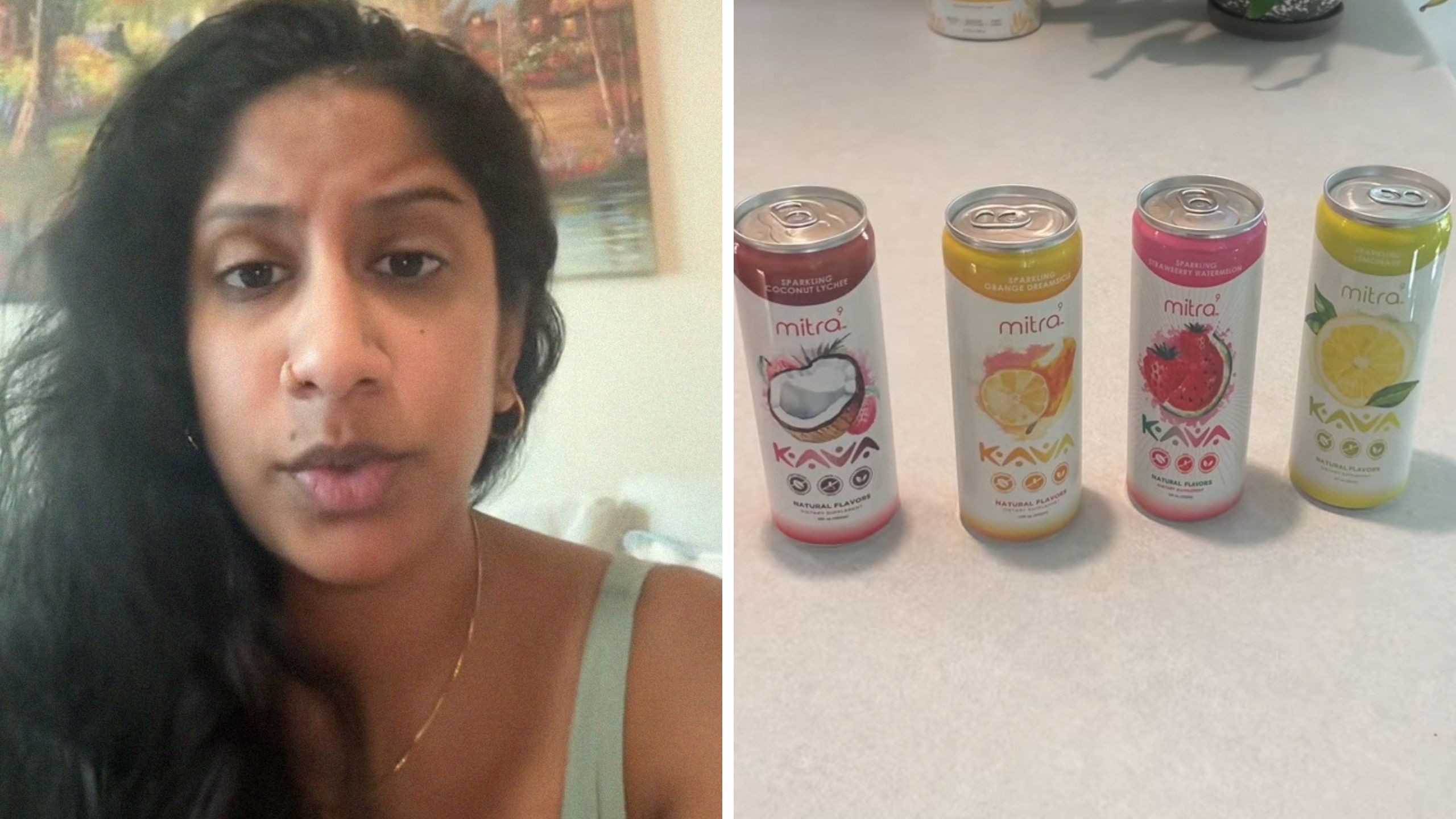
A woman took to TikTok after her Pilates instructor allegedly offered her a harmless-looking non-alcoholic seltzer. But after she drank it, she reportedly started feeling strange, later discovering an unexpected ingredient was to blame.
Woman warns against ‘alcohol-free seltzer’
TikToker and engineer Mary Kurian Coe (@marykuriancoe) says the incident happened after she attended a Pilates class at a new studio.
In a storytime video now viewed more than 834,900 times, she recalls being handed a “non-alcoholic seltzer” that turned out to contain an addictive substance.
“So I just got back from a Pilates class that I took at a new studio, and it was great… Instructor was awesome,” she says, before adding that someone was giving away energy drinks in the lobby.
After her class, her instructor allegedly told her the drinks were “alcoholic-free seltzers,” and invited her to grab one, so Coe didn’t think much of it. She picked the dragonfruit flavor, cracked it open in the car, and began drinking.
At this point in the video, she picks up the can, and it’s a non-alcoholic seltzer by a company called Mitra9.
“At first it just tasted really bitter,” she explains. “Not great, but whatever.” She kept sipping anyway. By the time she got back to her parking garage, she had nearly finished the can and started feeling “weird.”
Looking closer, she noticed fine print on the label. “It says older than 18 or 21 years old, and I’m like, ‘Why would it say that?’” she recalls.
When she checked the supplement facts, she realized what was inside. “There’s freaking kratom in it,” she exclaims. “And it doesn’t say it anywhere in the front.”
For her, the realization was disturbing. “If you’re gonna put kratom in stuff, state it on the front so that people don’t mistakenly consume it, especially if you’re a recovering addict,” she said.
She concluded bluntly, “Also, it tastes like [expletive].”
What is kratom?
Kratom, also called Mitragyna speciosa, is a tropical tree native to Southeast Asia. Its leaves contain compounds that can produce effects similar to opioids and stimulants.
A report published in the journal Preventive Medicine estimates that between 10 and 16 million people in the U.S. have consumed kratom. While not classified as an opioid, it interacts with the brain’s opioid receptors, making it addictive for some.
Additionally, the FDA has not approved kratom for medical use and says it should not be marketed as a dietary supplement. The DEA also lists it as a “Drug and Chemical of Concern,” though it isn’t federally banned.
Currently, a handful of states, including Alabama, Arkansas, and Wisconsin, have outlawed its sale, while most others allow it under varying regulations.
Despite that, kratom-related deaths have been documented when it’s combined with other substances. Regulators continue to debate its future.
Commenters are horrified
In the comments under Coe’s video, people were stunned by her experience.
“That’s legal action—you drove intoxicated unknowingly,” one user wrote.
Another pointed out the risks for those in recovery: “This could break someone’s sobriety without them knowing and cause them to spiral.”
Someone else added: “My friend who’s SOBER, in recovery, someone gave her one of these and she had no idea. She thought it was a regular energy drink. There are people in rehab for this.”
@marykuriancoe Please make sure that you are reading the back of anything that is being sold as a “energy drink” or “non-alcoholic seltzer”. Kratom extracts are highly addictive opioid like substances. These companies should be required to put that there is kratom in their product prominently on the front. #feelgood #addiction #energydrinks #supplements #buyerbeware ♬ original sound – Mary Kurian Coe
And one viewer noted the branding itself was misleading. “IT SAYS MITRA 9 RIGHT ON IT,” they said, referring to Mitra9, the name of the product Coe showed on camera. The word is likely a nod to Mitragyna, the scientific name of the kratom plant. However, it should be noted that not all consumers are aware of that fact.
In her caption, Coe urged others to read labels closely. “Kratom extracts are highly addictive opioid-like substances,” she wrote. “These companies should be required to put that there is kratom in their product prominently on the front.”
The Mary Sue has reached out to Mary Kurian Coe via Instagram and to Mitra9 via email for comment.
Have a tip we should know? [email protected]







